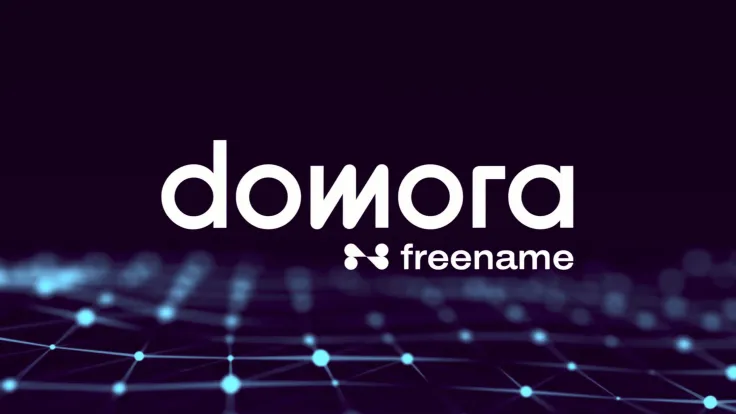
Disclaimer: The opinions expressed by our writers are their own and do not represent the views of U.Today. The financial and market information provided on U.Today is intended for informational purposes only. U.Today is not liable for any financial losses incurred while trading cryptocurrencies. Conduct your own research by contacting financial experts before making any investment decisions. We believe that all content is accurate as of the date of publication, but certain offers mentioned may no longer be available.
Web3 domain platform Freename launched its new service, Domora, on October 22, introducing fractionalized ownership of Web2 domains to users across both traditional and decentralized finance. The Swiss-based startup aims to democratize access to premium internet domains, describing them as a long-established but underutilized class of high-value digital assets.
Traditional internet domains—especially those on the globally popular .com TLD—have long attracted high-net-worth individuals as well as digital investors and entrepreneurs, thanks to the prestige and visibility associated with owning one of the limited number of premium names.
Multimillion-dollar domain sales date back to the 1990s, with more recent examples including Chat.com, NFTs.com, and Voice.com, each reportedly generating eight-figure sale prices. Some of the most notable figures known to hold or trade premium domains include tech magnate Elon Musk, who reacquired X.com from PayPal in 2017, and HubSpot co-founder Dharmesh Shah, who purchased Chat.com for over $15 million before reportedly reselling it to OpenAI shortly after.
While it’s no secret that premium .com domains can fetch millions at auction, the market remains largely illiquid and slow-moving, with sellers often waiting years to find a buyer willing to meet their asking price. As a result, ownership of the most valuable domains has long been concentrated among the ultra-wealthy, who can afford to hold tens of millions of dollars in illiquid assets in anticipation of major paydays.
Domora proposes to change this dynamic by enabling domain holders to sell fractional ownership stakes in their assets. The approach not only brings much-needed liquidity to domain portfolios but also allows small investors to acquire fractional shares in high-value domains starting from as little as $1, similar to how traders can purchase fractional shares or CFDs in equities. Domain owners retain full control over how their domains are used as long as they maintain at least 51% ownership.
To ensure trust and transparency, Domora verifies ownership rights through Freename’s ICANN-accredited registrar, where domains are temporarily held while fractionalized. This structure guarantees that domain shareholders maintain verifiable claims to their stakes and that ownership cannot be transferred without proper authorization.
Commenting on the launch, Freename CEO Davide Vicini said, “Fractionalized domain ownership is more than an innovation. Domora unlocks the hidden potential of premium domains by bringing accessibility and transparency to one of the most established yet underutilized digital markets.”
The global domain aftermarket is projected to surpass $1 billion within the next five years, driven by continued demand for short, brandable names. While .com domains remain the gold standard, investors are increasingly turning to alternative extensions such as .io – assigned to the British Indian Ocean Territory and popular among tech startups – and .ai, managed by Anguilla and favored by artificial intelligence ventures.
Founded in 2021 as a decentralized domain registry focused on Web3 naming, Freename has since expanded into the Web2 space as an ICANN-accredited registrar. The company also secured $6.5 million in a 2025 Series A funding round led by Entrée Capital, with contributions from Polymorphic Capital.
With the launch of Domora, Freename is deepening its vertical integration within the domain industry and, as the company claims, opening the door to a new and more inclusive market for premium domain investing.
 Alex Dovbnya
Alex Dovbnya Caroline Amosun
Caroline Amosun Godfrey Benjamin
Godfrey Benjamin Tomiwabold Olajide
Tomiwabold Olajide Gamza Khanzadaev
Gamza Khanzadaev